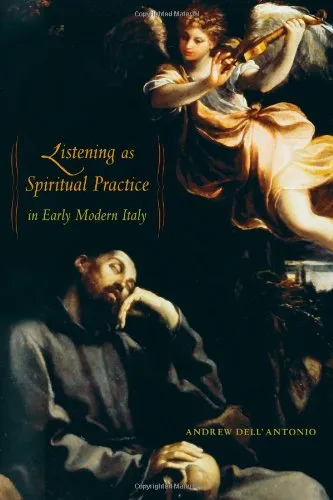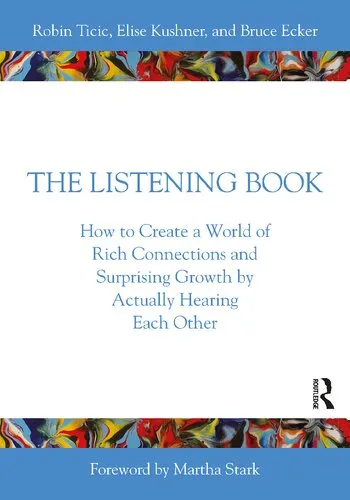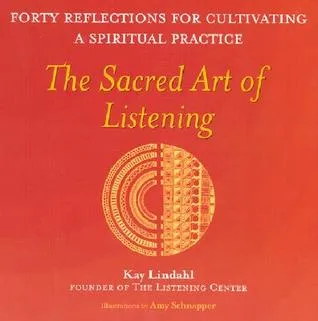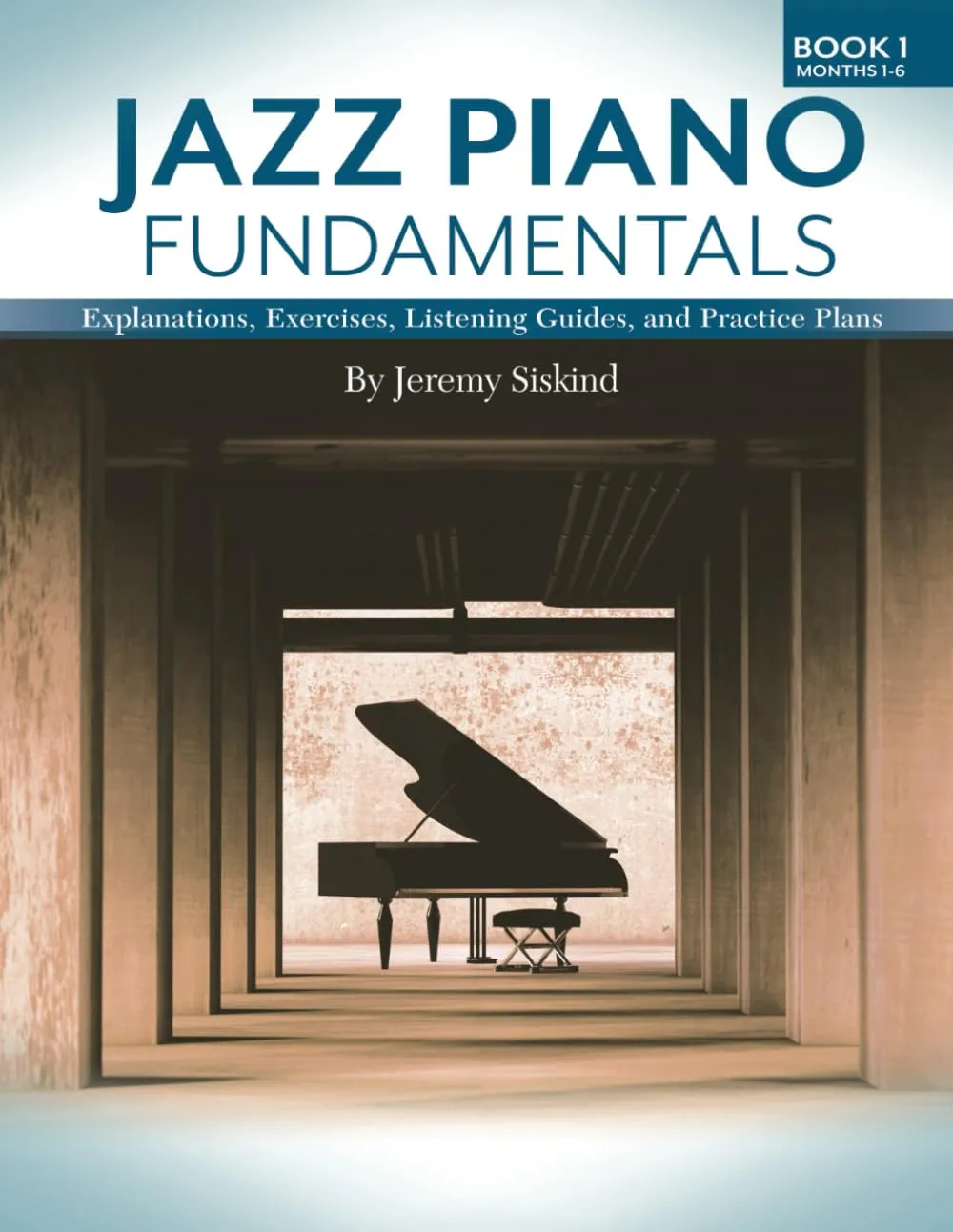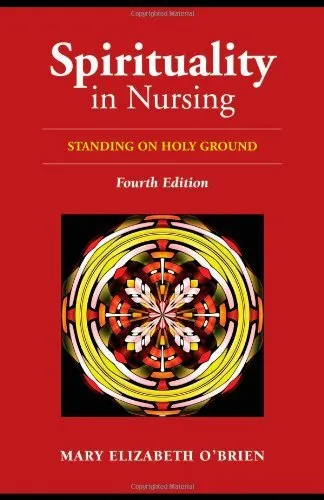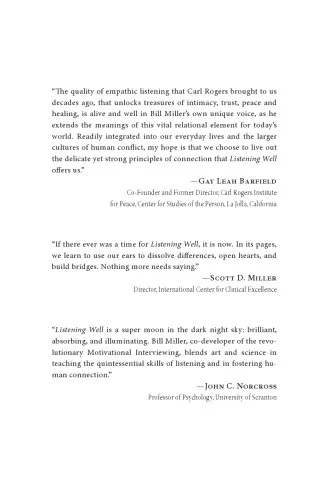Listening as Spiritual Practice in Early Modern Italy
4.5
بر اساس نظر کاربران

شما میتونید سوالاتتون در باره کتاب رو از هوش مصنوعیش بعد از ورود بپرسید
هر دانلود یا پرسش از هوش مصنوعی 2 امتیاز لازم دارد، برای بدست آوردن امتیاز رایگان، به صفحه ی راهنمای امتیازات سر بزنید و یک سری کار ارزشمند انجام بدینکتاب های مرتبط:
معرفی کتاب "Listening as Spiritual Practice in Early Modern Italy"
کتاب Listening as Spiritual Practice in Early Modern Italy اثری برجسته از اندرو دل’آنتونیو است که در آن به بررسی نقش شنیدن به عنوان یک عمل معنوی در فرهنگ باروک ایتالیا میپردازد. این کتاب با ترکیب موسیقیشناسی، تاریخ فرهنگی و پژوهشهای مربوط به معنویت، راهنمایی جامع برای درک عمیقتر از موسیقی و دین در دورهای از تاریخ ارائه میدهد که در آن هنر و مذهب به شکل تنگاتنگ با یکدیگر در ارتباط بودند.
خلاصهای از کتاب
اندرو دل’آنتونیو در این کتاب به بررسی چگونگی استفاده از موسیقی و listening به عنوان ابزارهایی برای تقویت ارتباط معنوی و ارتباط انسانی در دوره باروک میپردازد. او نشان میدهد که شنیدن چگونه میتواند به تجربهای عمیق از ایمان و نزدیکی با خدا تبدیل شود. این کتاب به تحلیل متون موسیقی، اسناد تاریخی، و گواهینامههای مذهبی میپردازد تا نمای کاملی از دیدگاهها و روشهای عملی عبادت در آن دوران ارائه دهد.
اگرچه بیشتر آثار مذهبی در این دوره بر اساس دیداری بودن طراحی شده بودند، کتاب تاکید دارد که صدا و شنیدن نقشی برابر یا حتی مهمتر در القای معنویت ایفا میکردند. دل’آنتونیو از نمونههای موسیقایی و تاریخی استفاده میکند تا توضیح دهد که چگونه افراد شنونده آن دوره توانستند بین حالتهای مختلف روحی حرکت کنند، از مدیتیشن تا وجد عرفانی.
نکات کلیدی
- نقش موسیقی در معنویت: کتاب به بررسی این موضوع میپردازد که چگونه موسیقی به عنوان وسیلهای برای تقویت ارتباط با خدا استفاده میشد.
- تحلیل تاریخی و فرهنگی: دل’آنتونیو با توجه به متن تاریخی، روندهای اجتماعی و مذهبی مرتبط با شنیدن را توضیح میدهد.
- تاثیر listening: تاکید بر این که شنیدن نه تنها عملی احساسی بلکه تمرینی فکری و معنوی است.
- مطالعات موردی: بررسی نمونههایی از موسیقی مذهبی باروک و تاثیر آنها بر مخاطبان زمان خود.
جملات معروف از کتاب
"Listening is not merely a sensory experience, but a practice deeply connected to one’s spiritual path."
"The act of hearing sacred music allowed individuals to transcend earthly concerns and glimpse the divine."
"In Baroque Italy, sound was a medium through which the soul could communicate with the infinite."
چرا این کتاب مهم است؟
Listening as Spiritual Practice in Early Modern Italy یک اثر بینرشتهای است که اهمیت شنیدن را به عنوان پلی بین مذهب و هنر نشان میدهد. این کتاب نه تنها برای علاقهمندان به موسیقی و تاریخ فرهنگی مفید است، بلکه برای آنهایی که به معنویت و شیوههای عملی تجربه مذهبی علاقهمندند نیز الهامبخش خواهد بود.
دل’آنتونیو در این کتاب یک نقطهنگاه جدید برای بررسی نقش صدا و موسیقی در تجربه دینی ارائه میدهد. به ویژه در دورانی که اغلب تمرکز بر دین بیشتر مربوط به جنبههای دیداری بود، این تحقیق حوزه جدیدی را برای مطالعات بیشتر باز میکند.
این کتاب نه تنها اطلاعات تاریخی ارزشمندی ارائه میدهد، بلکه خوانندگان را نیز ترغیب میکند تا به شیوه جدیدی به موسیقی گوش دهند و آن را به عنوان بخشی از سفر معنوی خود در نظر بگیرند.
Introduction to 'Listening as Spiritual Practice in Early Modern Italy'
In *Listening as Spiritual Practice in Early Modern Italy*, I explore the transformative role of listening in the cultivation of spiritual devotion and communal identity during the early modern period. This book dives deep into the intersection of music, theology, and cultural practice, uncovering how auditory experiences shaped the religious lives of individuals and communities in Italy from the late 16th to early 18th centuries. With a multidisciplinary approach, the work analyzes how the act of listening was consciously employed as a medium to achieve spiritual enlightenment and emotional transcendence in a society deeply attuned to ritual and liturgical performance.
Music and sound, as I argue, were not merely aesthetic or recreational experiences in this period; they were critical tools for devotion, self-reflection, and even social control. The intricate connections between sound and spirituality in early modern Italy reveal that listening could serve as an intentional practice, elevating the listener from the mundane to the divine. By placing listening practices at the heart of historical inquiry, this book offers a unique perspective on how sound shaped the human experience in religious and cultural contexts.
Detailed Summary of the Book
The book is structured around an exploration of key spaces and practices that made listening a central element of spirituality in early modern Italian culture. Beginning with a contextual overview of religious reforms and their emphasis on sensory engagement, the narrative examines how music and sound were carefully curated to evoke a heightened state of devotion and contemplative focus.
One major theme is how the Catholic Church employed polyphonic music and liturgical chant to reinforce its authority and inspire devotion among the faithful. By analyzing specific compositions and their performance contexts, I illustrate how these sounds served as conduits for ecclesiastical power and communal identity. From monastic environments where chant became a pathway to meditative prayer, to lavish cathedral concerts aimed at attracting both elites and common folk, listening played a binding role across different strata of society.
Key case studies include Jesuit practices of auditory meditation, where missionaries used verbal descriptions and sound to guide individuals into spiritual ecstasy, and the rising phenomenon of secular composers integrating sacred motifs into concerts. Together, these examples demonstrate that listening encompassed both a private, introspective act and a public, collective experience.
Key Takeaways
- Listening was regarded as an active, intentional practice that facilitated spiritual growth, rather than a passive reception of sound.
- The Catholic Church’s emphasis on the integration of sensory experiences into worship reflected broader cultural values of the early modern period.
- Music served not just as a tool for spiritual upliftment but also as a form of social organization and reinforcement of religious doctrine.
- The auditory realm in early modern Italy was a deeply theological space, where sound became the bridge between human and divine.
Famous Quotes from the Book
"Listening, in its most sacred form, blurs the line between the earthly and the divine, offering a path toward transformation and spiritual awakening."
"In early modern Italy, sound was not merely heard; it was absorbed into the soul, shaping both individual identity and communal purpose."
Why This Book Matters
This book contributes to a growing body of research that situates sensory experiences at the heart of historical studies. By focusing on the auditory dimension of spirituality, it opens new pathways for understanding notions of devotion, ritual, and cultural dynamics in early modern Europe. The insights offered in *Listening as Spiritual Practice in Early Modern Italy* will appeal to scholars of musicology, theology, and cultural history, as well as anyone interested in the ways sound shapes human experience.
The significance of this work extends beyond its scholarly contributions. At its core, the book invites readers to reflect on their own listening practices and consider how sound may play a role in their spiritual and emotional well-being—a timeless lesson rooted in centuries of tradition.
دانلود رایگان مستقیم
شما میتونید سوالاتتون در باره کتاب رو از هوش مصنوعیش بعد از ورود بپرسید
دسترسی به کتابها از طریق پلتفرمهای قانونی و کتابخانههای عمومی نه تنها از حقوق نویسندگان و ناشران حمایت میکند، بلکه به پایداری فرهنگ کتابخوانی نیز کمک میرساند. پیش از دانلود، لحظهای به بررسی این گزینهها فکر کنید.
این کتاب رو در پلتفرم های دیگه ببینید
WorldCat به شما کمک میکنه تا کتاب ها رو در کتابخانه های سراسر دنیا پیدا کنید
امتیازها، نظرات تخصصی و صحبت ها درباره کتاب را در Goodreads ببینید
کتابهای کمیاب یا دست دوم را در AbeBooks پیدا کنید و بخرید
1265
بازدید4.5
امتیاز0
نظر98%
رضایتنظرات:
4.5
بر اساس 0 نظر کاربران
Questions & Answers
Ask questions about this book or help others by answering
No questions yet. Be the first to ask!
